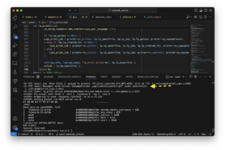slipperygrey
Well-known member
You should expect macipgw to behave just like you're used to. I simply merged all relevant patches from the netatalk-classic and Jason King forks. They made the code more robust and 64-bit safe.ya i can usually find time to test things on the weekends. Usually the weekends are packed with things to test and do: last week I wrapped up Vicom Internet Gateway.
edit: Any changes to the codebase? I would expect it to be somewhat dated, but still usable. And simplifyable -- heard something somewhere about it having many ways to activate it.
What do you mean by having many ways to activate it? Many ways to build the code, or many ways to run the macipgw app?
The biggest change that *I* made was to integrate macipgw with Netatalk's Meson build system, so that you can build it in one go with the rest of Netatalk. Previously, you needed to bring your own copy of Netatalk: either a compatible shared libatalk library to link with, or the entire source code.

